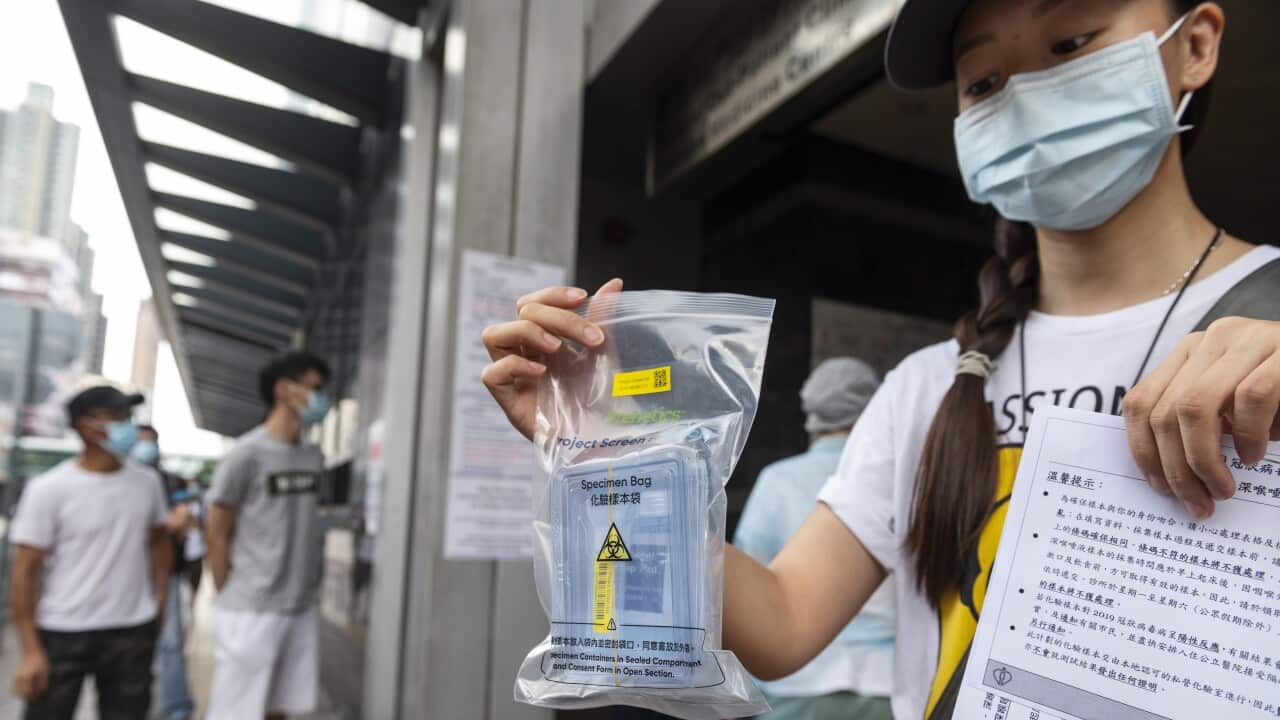One of Australia's most senior religious leaders has warned he would likely boycott a coronavirus vaccine being developed by Oxford University over the use of historic fetal tissue in developing the immunisation.
But another is distancing himself from the boycott calls, which have created a potential headache for the Morrison government.
Anglican Archbishop of Sydney Glenn Davies is concerned scientists are using cell lines from an electively aborted foetus, a common practice in medical research.
"To use that tissue for science is reprehensible," he told the ABC on Tuesday.
Dr Davies said he would probably wait for a second vaccine if the first was from Oxford.
"But that would be a personal decision of mine and not a decision that I would bind anyone's conscious with," he said.
His views are shared by Catholic and Greek Orthodox leaders, who have penned a letter to the prime minister expressing their concerns.
However, Catholic Archbishop of Sydney Anthony Fisher distanced himself from any suggestions of boycotting the potential vaccine.
"I have not, nor would I, call for Catholics to boycott the vaccine if it became available," Archbishop Fisher said.
"I, for one, don't think it would be unethical to use this vaccine if there is no alternative available."
Last week, , with the inoculation offered free to all Australians.
The Oxford/AstraZeneca Vaccination uses HEK-293 cells, a strain originally derived from human kidney cells grown in an aborted fetus from the Netherlands.
HEK-293 cells are commonly used in research due to their robustness and ease of maintenance.
'The government will always follow medical advice'
A spokesman for Prime Minister Scott Morrison said he respected the views of Australia's religious communities and understood the issues being raised.
"The government is investing in research and technology that we hope will produce a range of vaccines that will be suitable for as many Australians as possible," the spokesman told AAP.
"Many vaccines in development do not contain these cell lines, including the UQ vaccine candidate which the government is already supporting with $5 million.
"The government will always follow the medical advice and will be encouraging as widespread use of the vaccine or vaccines as is possible."
Questions have been raised about why the religious leaders have taken a strong public stance against the coronavirus vaccine and not other common drugs, which are developed in the same manner.
Cells derived from elective abortions have been used since the 1960s to manufacture vaccines against rubella, chickenpox, hepatitis A, and shingles.
They have also been used to fight diseases including hemophilia, rheumatoid arthritis and cystic fibrosis.
Deputy chief medical officer Nick Coatsworth is aware of the churches' concerns but said there were strong ethical regulations surrounding the use of human cells.
"The reality for the vaccines is that they need cell cultures in order for us to grow them," he told reporters.
"Human cells are really important part of their development."
The church leaders have sought assurances the vaccine would not be mandatory.
They also want a guarantee no one would be pressured to prescribe, dispense or consent to the use of it and that an "ethically uncontroversial alternative vaccine" would be made available.
Earlier this year, senior American Catholics and anti-abortion groups raised ethical objections to a number of coronavirus vaccine candidates developed from cells derived from historic aborted human fetuses.
Labor frontbencher Jim Chalmers said when a vaccine was available as many people as possible should be vaccinated to ensure it is effective.
"That's my personal view. I say that as a Catholic. That's the best outcome for Australia," he told the ABC.
"The vaccine is what will get us to the other side of this diabolical health problem with all the economic consequences it brings."
People in Australia must stay at least 1.5 metres away from others. Check your state’s restrictions on gathering limits.
If you are experiencing cold or flu symptoms, stay home and arrange a test by calling your doctor or contact the Coronavirus Health Information Hotline on 1800 020 080.




